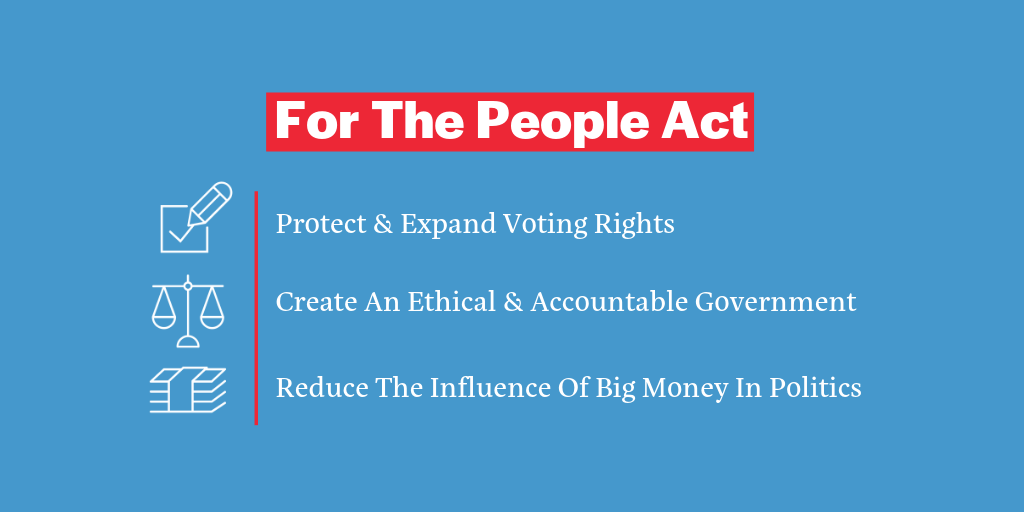HB 2039 is one of those wrong bills
House Bill 2039 is the brainchild of Rep. Steve Huebert (R-Valley Center), chair of the Kansas House Education Committee. He claims students graduating from Kansas high schools, despite having passed courses in American history, civics, and American government, have little to no understanding of “civics.” To that end, he has created HB 2039 – a bill that micromanages teaching and assessment in our social studies classrooms.
Let’s talk first about the U.S. citizenship test. Have you taken it? We have. It’s not a civics assessment. It is essentially an American trivia test. It is a multiple choice test of factoids. It doesn’t talk about how to register to vote or how to engage with a legislative body or how to rally the public around an issue. No. It asks questions like the following: “Who is the current Vice President of the United States?” “Where is the Statue of Liberty located?” “What ocean is off the west coast of the United States?”
You may ask, “If this test is so easy, why should anyone care?” We should care because raising this test to the level of a high stakes assessment – the only assessment that MUST be passed to graduate from high school – degrades the standards set by the members of the state board of education and embraced by social studies teachers across the state. Actually, helping students learn the fundamentals of civic engagement, of making a difference in their community, their state, and their nation through civic engagement, is not as important as knowing that the Statue of Liberty is in New York Harbor.
The bill would require teachers administer the U.S. citizenship test and that all students must successfully pass that test in order to get credit for passing a civics class. Essentially, Huebert asserts getting students to pass the test is the most important thing a high school social studies teacher must do. All the other standards adopted by the Kansas State Board of Education? Not all that important.
House Bill 2039 also runs counter to the Kansas Constitution. The Constitution says the Kansas Legislature “shall make suitable provision for finance of the educational interests of the state” and leaves to the elected state board of education members the “general supervision of public schools, educational institutions and all the educational interests of the state.” This bill – and others like it – usurps the authority of the state education board and is a slippery slope that can lead to legislative micro-management of teaching, curriculum development, and student assessment.
KNEA, KASB, USA/KS, the Kansas State Board of Education, and Kansas social studies teachers oppose House Bill 2039.
SB 208 is another one of those wrong bills
Senate Bill 208 was brought by Sen. Renee Erickson (R-Wichita). She says it creates “fairness” but what it actually does is codify discrimination. The bill bans transgender girls from playing on girls athletic teams in the K-12 schools and at our colleges and universities. However, it does not stop transgender boys from playing on boys teams.
Transgender youth account for 2% of all high school students; yet research shows that 27% of them feel unsafe at school, 35% of them report being bullied, and 35% of them attempt suicide. Kansas legislators have spent years bemoaning bullying in schools and worrying about the teen suicide rates, yet here, they propose legislation that marginalizes transgender girls and will only legitimize bullying in the eyes of those bullies. This bill will only feed the depression and anxiety that lead to suicide.
Make no mistake, SB 208 is not about protecting fairness in girls sports. This legislation is a means to an end – it is fully intended to rally the anti-LGBTQ base and turn them out in elections.
About 2 PERCENT of high school students in the United States identify as transgender, and not all are involved or even interested in competitive school sports. Of the 200,000-plus athletes competing in women’s college sports, one estimate suggests that about 50 are transgender. Notwithstanding those relatively small numbers, the issue of transgender girls in sports is getting outsize attention in Congress and statehouses across the country. That’s because conservatives see the issue as a convenient way to whip up fears and bigotry about transgender people as they try to chip away at advances in equality.
The Washington Post, 3/20/2021
In a vote on the Kansas Senate floor, the bill passed with 24 votes (Alley, Baumgardner, Bowers, Claeys, Erickson, Fagg, Gossage, Hilderbrand, Kerschen, Kloos, Masterson, O’Shea, Olson, Peck, Peterson, Pyle, Ryckman, Steffen, Straub, Suellentrop, Thompson, Tyson, Warren, and Wilborn). Ten Senators voted NO (Corson, Dietrich, Faust-Goudeau, Francisco, Hawk, Holland, Holscher, Pettey, Sykes, and Ware) while another five passed (Doll, Haley, Longbine, McGinn, and Pittman). Senator Billinger was absent.
The bill had been scheduled for a hearing in the House Education Committee but that hearing was cancelled. We do not know if that hearing will be rescheduled at this time.
There is no better argument against Senate Bill 208 than this father’s testimony before the Missouri Legislature as they considered the same legislation. We wonder if Kansas legislators will listen.
HCR 5015 is a resolution that is just plain wrong
This resolution comes from the mind of Rep. Blake Carpenter (R-Derby). The resolution calls upon the Kansas Congressional delegation to vote NO on the “For the People Act,” better known as H.R. 1.
First, one must know what the “For the People Act” is. It is a federal law that would increase access to voting, protection of voter rights, fund election security, improve voter registration opportunities, reduce the influence of money in politics, and strengthen ethics laws for politicians. But what is alarming about H.R. 1 for politicians like Rep. Carpenter is – if enacted – it would increase voter turnout. At a time when Republican-controlled legislatures around the country are proposing and enacting draconian voter suppression measures, H.R. 1 would stop those measures from working.
Voting trends show that higher voter turnout generally (but not always) benefits Democrats which is exactly why Republicans like Rep. Carpenter fear the “For the People Act.”
The Brennan Center for Justice calls H.R. 1 “America’s next great civil rights bill.” Here is just part of their analysis of the bill:
The For the People Act offers transformative change to meet these systemic challenges. This begins with protecting the franchise, which was under siege even before the Supreme Court gutted the Voting Rights Act in 2013 in Shelby County v. Holder. The bill’s practical reforms address the failures we encounter like clockwork every election — long lines and overly aggressive purges, particularly in minority communities — that cause Americans to ask how this could persist in the 21st century. The bill includes two weeks of early voting so everyone need not stand in line on one lone Tuesday, as well as automatic and same-day voter registration so arbitrary administrative hurdles and purges don’t determine access to the ballot. It also restores the vote to all formerly incarcerated citizens and allows people who lack photo ID to vote with sworn affidavits of their identity.
Brennan Center for Justice
In a long debate on the Kansas House floor, Rep. Vic Miller (D-Topeka) called the debate a “waste of time” in that the U.S. House had already approved H.R. 1 and Senate Minority Leader Mitch McConnell (R-KY) had already announced his intent to block it from reaching the Senate floor. And, of course, Kansas can be sure U.S. Senators Jerry Moran and Roger Marshall would not vote for the measure if it did come to a vote.
Rep. Miller tried to educate his fellow House members on what was in H.R. 1, pointing out Kansas election law and procedures were often even more “liberal” than what was in the bill. As an example, the bill requires 15 days of advance voting while Kansas already offers 21 days. Why Kansas legislators would oppose the bill, unless it was to allow for the passage of voter suppression measures, is a wonder.
But indeed, Kansas House Republicans apparently do support voter suppression measures and oppose expanded access to voting. Every one of them present for the vote voted for HCR 5015. No Democrats supported this resolution opposing the protection of voting rights.
HB 2058 is very wrong for Kansas colleges
It seems that the NRA will not be happy until every single Kansan is carrying a firearm.
Go back in history and you’ll see Dodge City, Kansas, once had a very strict gun control policy: Every cowboy had to hand in his gun before coming into town. My, how times have changed. Kansas was one of the last states to adopt concealed carry of handguns and since passing that law, the Kansas Legislature, under the direction of the NRA, has adopted a “constitutional carry” provision. This means anyone 21 years of age or older can carry a concealed firearm without a permit, without any gun safety training, and without any restrictions. The legislature has prohibited local governments from restricting the carrying of concealed firearms. Our colleges and universities can only restrict firearms if they set up security (metal detectors and security personnel) at every entrance to every building on campus. Since they can’t afford to do that, they essentially cannot restrict firearms.
Now along comes HB 2058. This bill came to the House floor as a proposal to create conceal carry permit reciprocity with other states. In other words, “if you recognize our permits, we will recognize yours.” On the floor, an amendment by Rep. Blake Carpenter (remember him – the anti-voting rights guy?) creates a new “provisional” conceal carry permit for individuals 18 to 20 years of age. The amendment passed and the bill was then passed by the House. It had a hearing in the Senate but has not yet moved to the floor.
So here’s why the bill is so wrong: KNEA has not taken a position on the issue of reciprocity but we do have a position opposing the lowering of the age for a conceal carry permit. With the legislatively enacted limits on the authority of tech colleges, community colleges, and universities to manage the carrying of firearms on their campuses, this bill would allow nearly every student on every campus to carry a concealed firearm into class or in their on-campus living quarters.
We believe this seriously jeopardizes the safety of faculty, staff, and students at our colleges. The state already prohibits the purchase of alcohol by individuals under 21 years of age because the state does not believe they are mature enough to make wise choices with alcohol. This year, the legislature has a bill (HB 2340) to raise the age for the purchase of tobacco products to 21 because they do not believe these young people are mature enough to make wise choices with tobacco. There is also a bill to restrict the use of cell phones in cars by individuals under the age of 21 (SB 25) because they do not believe these young people are mature enough to make wise choices with cell phones in cars. But apparently the legislature DOES believe they are mature enough to make wise decisions when carrying concealed firearms around campus.
KNEA, in testimony before the Senate Federal and State Affairs Committee, asked committee members to either remove the new permit for 18 to 20 year olds or restore authority to our colleges and universities to regulate the carrying of firearms on their campuses.






